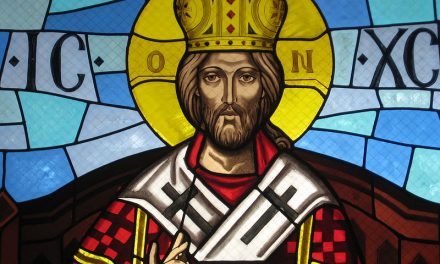Nineteenth Sunday in Ordinary Time
Lectionary: 117
Wis 18:6-9
Ps 33:1, 12, 18-19, 20-22
Heb 11:1-2, 8-19
Lk 12:32-48
Last night, my husband and I watched an incredibly moving episode of Downton Abbey. For those of you still in the middle of the series, beware that a spoiler lies ahead. In this particular episode from season 3, Lady Sibyl develops eclampsia during the final days of her pregnancy. Though she successfully gives birth to a baby daughter, later that night she starts to have seizures and then dies a horrible death while her husband and mother hysterically plead with her not to leave them. The most moving image from that scene, however, is Lord Grantham, her father, looking down at his dead daughter in shock. “This cannot be,” he says. “She is only 24 years old.”
This cannot be. It’s not time. I’m not ready. Our gospel reading this weeks talks about preparedness, preparedness for when Christ will call us. Obviously, this means being prepared for our own deaths. It is a truism to say that our world today is a death-denying society. Death is something hidden from plain view or else dramatized through the media. We are given few, if any, resources to prepare for our own deaths, even though we know as a fact that we must die. Even Christians, who are promised the Kingdom of God, as Jesus tells us in our gospel, are often caught unaware by their death and resist it even when it is clear that the time has come.
Jesus tells us, on the contrary, to “gird up your loins and light lamps and be like servants who await their master’s return from a wedding, ready to open immediately when he comes and knocks.” How do we then prepare for our death? The Catholic tradition is rich with resources. The first, and perhaps the most powerful, are the sacraments. In baptism, we are incorporated into Christ’s own death and resurrection and made heirs God’s kingdom. In the Eucharist, we are given a foretaste of the heavenly banquet and a holy longing to no longer see Christ through a veil under sacramental images, but to see Him face to face, to know him as we are fully known. And in confession, we are forgiven of our sins and formed through grace and our own penitential efforts into saints.
Preparing for our own death also includes a certain level of detachment from the world. Jesus says in the gospel,
Sell your belongings and give alms. Provide money bags for yourselves that do not wear out, an inexhaustible treasure in heave that no thief nor moth can destroy. For where your treasure is, there also will your heart be.
Despite the goodness of the world, it also weighs us down and distracts us from our heavenly goal. We become so distracted by career goals, family concerns, and pleasurable pursuits that we forget that this world is not our end. Jesus tells us to not hold on too tightly to anything this world offers.
Detachment from the world is not only necessary for preparing for one’s death, but also for hearing and responding to the call of the Lord. We must be ready for the Lord to surprise us and take us in unexpected directions. This is what we are given in the example of Abraham in our reading from Hebrews. Abraham was called by God to leave his home, his family, his entire life and go to an unknown land in a foreign country. Many of us will be called to do unexpected things–accept a stranger into our family, leave behind a career for a different vocation, leave our homes. If we are to be able to obey God’s call when it comes, we must be able to set aside the things that we care about and the goals that we have now and follow, even if we do not know where we are being led.
Faith is what allows for such detachment. Our reading from Hebrews defines faith beautiful as “the realization of what is hoped for and the evidence of things not seen.” Faith is what turns our gaze heavenwards rather than towards the world. Faith is the ability to know what is ahead even if we can’t see how we are going to get there. Faith is the loving trust in the promises of God.



